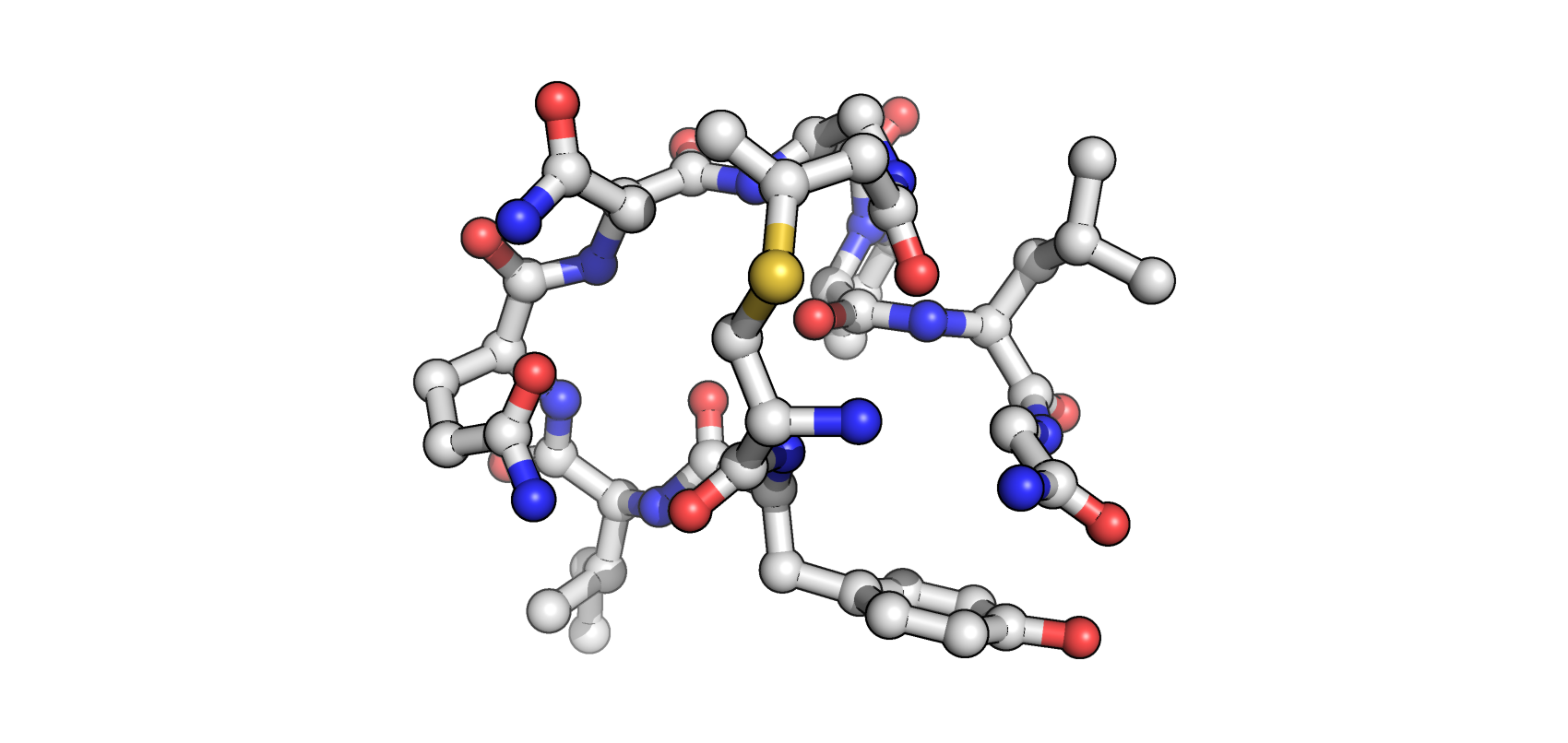Exciting building blocks unlock peptide potential
Coined ‘bacterial super villains’, the World Health Organisation has a list of ‘priority pathogens’ which have developed resistance to most drugs. With the rise of these super bugs, a huge spectre looms for human health, and WHO is calling for urgent novel drug development to combat the threat.
MWC investigators at the University of Auckland's School of Chemical Sciences, on the cutting edge of peptide chemistry, have developed a fascinating new technology, paving the way for rapid and low-cost access to new therapeutic molecules in drug discovery and development.
Dr Alan Cameron, an MWC Associate Investigator and Postdoctoral Research Fellow says peptide therapeutics is one of the fastest growing areas of modern medicine.
He explains, “Peptides are strings of amino acids. Their ability to modify, join and have parts react independently of each other, make them exciting building blocks in medicinal chemistry. However, without modification, peptide-based drugs cannot easily penetrate cells and may degrade in minutes.”
The MWC group has focussed on introducing a chemical modification which constrains the peptide into a rigid shape. In this work, Alan rigidified peptides by introducing a new complementary building block, an allenamide. The allenamide links two side chains. This one-component peptide stapling overcomes the existing drawbacks of peptide-based drugs and increases both potency and half-life. It does not require reagents, catalysts or other linkers.
“Essentially it provides a platform to design and synthesize antimicrobial molecules with a mix-and-match, click-in-place chemistry.”

A 3D representation of a vinyl sulfide cyclised analogue of oxytocin which was prepared as a proof-of-concept in the work. The newly formed carbon-sulphur bond is seen here in yellow joining together the two ends of the molecule to complete the ring. Image courtesy of Dr Alan Cameron
The work forms part of a highly collaborative MWC research programme to address Antimicrobial Resistance, predominantly geared towards developing novel antimicrobial peptides, and has already seeded numerous research projects for MWC affiliated PhD candidates.
Deservedly, the work has gained high praise by international peers. The group’s paper co-authored by Dr Alan Cameron, Associate Professor Paul Harris and MWC Deputy Director Distinguished Professor Dame Margaret Brimble, was recently published in the field-leading journal Angewandte Chemie International Edition, a journal of the German Chemical Society1. The paper was honoured with VIP and HOT status, afforded only to the top 10% tier of articles.
Alan says this technology could easily be used for non-infectious as well as infectious diseases with many high impact evaluations of the novel technology already underway thanks to close collaborations across the MWC network.
“Right now, the team is exploring how the allenamide staple can be used to prepare new peptide-based drugs to target multi-drug resistant bacteria which appear on WHO’s priority-1 list.”
“We are also investigating this platform to develop cyclised antimicrobial peptides with broad spectrum activities to specifically target Group A Streptococcus infections, a significant health issue in New Zealand, responsible for acute rheumatic fever and rheumatic heart disease.”
The team is also working closely with Professor Alan Davidson and Dr Veronika Sander to evaluate the safety profile of allenamide-modified antimicrobial peptides in a kidney organoid model.
Dame Margaret Brimble, MWC Deputy Director, says this work demonstrates the collaborative power of MWC investigators who are doing exceptional world-leading science which may lead to important therapeutics to combat dangerous and virulent disease both now and in the future.
1. Cameron, A. J., et.al. (2020). Angewandte Chemie - Int. Ed., 59(41), 18054-18061. https://doi.org/10.1002/anie.202004656